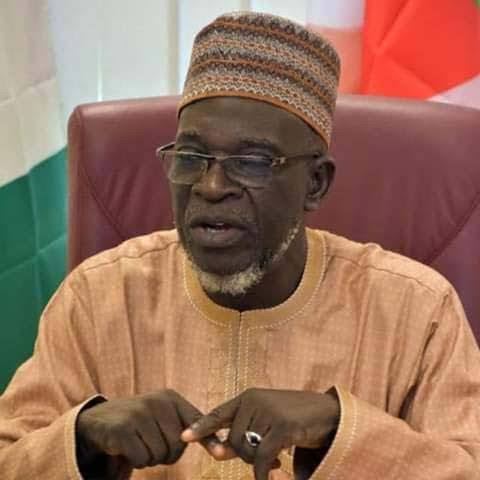Agribusiness Innovation Ltd. (AGRICON), and critical agric stakeholders have said that mechanization is key to attaining food security and combating hunger in Nigeria and Africa at large.
The 2-day 3rd AGRICON Conference and Expo 2022 themed “End Hunger Today: Unveiling and Entrenching Sustainable Food Solution Through Mechanisation and Innovation”, aimed at engaging stakeholders in the sector in a cross-pollination of ideas
In his speech, the Federal Minister of Agriculture and Rural Development, Dr Mahmoud Abubakar represented by Mrs Alade, emphasised the importance of the conference as it provides a platform for Nigerian farmers and Agribusiness entrepreneurs to bond together with local uptakers and international markets to engage in business dialogue.
He said that this year’s theme was very relevant as it focused on the agricultural sector, adding that in spite of its contributions to the economy, “the agricultural sector is faced with the challenge that has consistently eroded the gains in the sector because of poor land tenure system, low technology, high cost and poor distribution of imports, limited financing, post-harvest losses, poor access to markets. Climate change and its consequences have also impacted negatively to the low productivity.”
He said the Ministry is fully aware of the challenges and is working hard for amelioration through various interventions and programmes that have been put in place to overcome the problems highlighted.
Earlier in her remarks, the MD/CEO of Agribusiness Innovation Int’l Ltd. (AGRICON), Mrs Stella Oraka, said that hunger cannot be eliminated, but however noted that AGRICON is making significant progress towards attaining food security through collaboration with government agencies as well as private institutions and research institutes among others in bringing out innovative ideas in agriculture.
Mrs Oraka stated that AGRICON in the last 3 years has shown commitment by adding value to agricultural processing, activities and products to meet export standards while improving people’s lives.
According to her, AGRICON over the years has trained several Nigerians to become entrepreneurs and not job seekers, and would be offering free localised skill-acquisition training, “a situation where a group of entrepreneurs can be taught how to produce their honey… and how you can add value.
“We have what we call the AGRICON Champions, these are people that started from nothing, now they are processors, they are exporters. We train them and ensure that every other person around will assist them in whatever is their challenge,” she said.
On his part, Chairman of the Senate Committee on Agriculture, Senator Muhammad Enagi, said the theme of the conference vividly brings to mind, the existing global economic challenges as the world is facing an unprecedented global food crisis resulting from extreme weather and drought as well as the impact of the covid-19 pandemic and rising food inflation.
“Furthermore, conflict is the biggest driver of hunger globally responsible for 65 per cent of people currently facing hunger and food insecurity.”
Senator Enagi worried that Africa currently spends a whopping 35 billion dollars annually on food imports, adding that according to a projection by the African Development Bank, “if the current trend continues, food imports could rise as high as 110 billion dollars annually by the year 2050.”
He highlighted agricultural mechanisation solutions as one of the contemporary production strategies, techniques of technological advances and discoveries applied to improve food security and reduce hunger and alleviate poverty.
“Women grow 70 per cent of food on small farms, a task, anchored by physical labour. Now, with the African population expected to double by 2050, the continent must ditch the hoe in favour of modern technology which will complete the same tasks far more efficiently with better yields.”
He further said that because of the lack of proper mechanisation in Nigeria, about 70 per cent of people are involved in farming, yet, Nigeria imports a lot of food items
He added that statistics also indicate that there are only about 30,000 tractors in Nigeria and most of them are poorly maintained, as against a minimum of about 750,000 tractors required to achieve proper agriculture in Nigeria.
He urged all stakeholders to maximise the benefits of the conference, assuring that being the legislative arm of government, the National Assembly will give the necessary support to the executive arm of government and all stakeholders through relevant legislation and promotion of policies and programmes that will entrench agricultural mechanisation and innovation in Nigeria.


